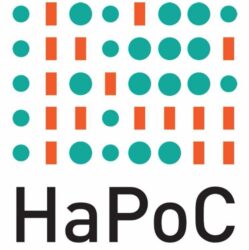HaPoC 2019: Call for Abstracts
5th International Conference on the History and Philosophy of Computing
28-30 October 2019
Bergamo, Italy
Website: https://hapoc2019.sciencesconf.org
Email: hapoc2019@sciencesconf.org
Today more than ever computers have taken center stage in our lives: science, economy, politics, art, there is no single human endeavour that has been left unaffected by Information Technologies. Whether this impact is positive or negative, is still very much up for debate.
People connected to the Internet can enjoy an unprecedented amount of information and computing power at their disposal, but more and more negative side effects of a widespread use of computers are brought to our attention: automation bias, echo chambers, shortened attention spans, job displacement, election hacking are just a few examples. The latest AI-hype fuelled by computationally feasible machine learning techniques have brought to reality philosophical topics previously relegated to mental experiments and theoretical discourses. The trolley problem has never been more popular thanks to self-driving cars.
The need to conduct a systematic and well-informed discussion in a context ranging from theoretical and mathematical problems to labour and resource exploitation issues is evident. The broken dialogue between young and aggressively finance-oriented tech moguls and old-school politicians fumbling for regulation of little-known phenomena is not promising.
HaPoC’s appeal to historical and philosophical reflection aims at addressing this shortcoming. We aim to bring together researchers exploring the various aspects of computation: historians, philosophers, computer scientists, sociologists, anthropologists, designers, manufacturers, practitioners, artists, logicians, mathematicians, each with their own experience and expertise, all part of a society impacted by computation, and all necessary to the creation of a better discourse.
MAIN TOPICS
For HaPoC 2019, we welcome contributions from scholars who intend to participate in the debate on the impact of computers on culture, science, and society from the perspective of their area of expertise, and who are open to engage in interdisciplinary discussions across multiple fields. Topics include but are not limited to:
– History of computation, computers, algorithms, programs, paradigms, software and hardware companies and communities, …
– Philosophy of computation, philosophy of the mind in relation with computer science, ethics of computer science, epistemology of computer science…
– Foundational issues of computation, limits of computability, the Church-Turing thesis, formal systems, semantic of programs, …
– Computation in the Sciences, experiments and simulations with computers, big data analytics, epistemological issues, …
– Computation in Society, social networks, news and content distribution, automation, digital divide, privacy and security, …
– Computation in the Arts, digital art, interactivity, computer games, affective computing, human-computer interaction, …
HOW TO SUBMIT
We cordially invite researchers working in a field relevant to the main topics of the conference to submit a short abstract of 180-200 words and an extended abstract of at most a 1000 words (references included) through EasyChair at:
https://easychair.org/conferences/?conf=hapoc2019
Accepted papers will be presented in 30 minute slots including discussion. Abstracts must be written in English. Please note that the format of uploaded files must be in .pdf. Submissions without extended abstract will not be considered.
IMPORTANT DATES
Submission deadline: April 30, 2019
Notification of acceptance/rejection: June 30, 2019
Conference dates: October 28-30, 2019
TRAVEL GRANTS
The HaPoC Council is happy to announce the availability of four HAPOC travel grants of $250 each to support participation at the conference. An accepted paper is required in order to be eligible for the grant. In order to apply, please send the following details to info@hapoc.org:
– CV and a brief (up to 200 words) description of why you require financial support
– The title of your HaPoC 2019 submission
– Detailed budget indicating any other funding possibilities (if available)
POST-PROCEEDINGS
A special issue of Interdisciplinary Science Reviews (Taylor & Francis)
https://www.tandfonline.com/toc/yisr20/current
will be dedicated to the works presented at HaPoC 2019. The tentative calendar is as follows:
HaPoC conference: 28-30 October 2019
Special Issue Call for Papers: December 2019
Deadline for submissions: 01 June 2020
Reviewing process: July to September 2020
Notifications: 30 September 2020
Deadline for revised papers: 31 December 2020
Special Issue publication: beginning of 2021
